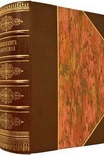Siro, David Ignatius [ereader for android TXT] 📗

- Author: David Ignatius
Book online «Siro, David Ignatius [ereader for android TXT] 📗». Author David Ignatius
A minor flap developed in mid-March when it was discovered that an Iranian local hire in the visa department had been selling places in the queue to his compatriots for sums as large as $10,000. Investigators were dispatched from Washington, and they proceeded to interview everybody in sight. Evidently this was the sort of crime the bureaucracy could get really excited about—petty larceny. The Turks eventually agreed to prosecute the visa clerk; the poor Iranians who had given him payoffs were stricken from the roll of eligibility. Taylor, who knew nothing about the scheme but had unwisely told one of the investigators that the Iranian was the sort of entrepreneur who would do well on Wall Street, was officially found blameless. But unofficially it was clear that the bean counters back home were not pleased.
Taylor muddled on. What continued to interest Washington most were the Bulgarians and their putative plot to smuggle guns into Turkey. Taylor had uncovered little evidence that it was true. The unhappy fact was that guns flowed into Turkey from every direction—Lebanon, Syria, Iran, Greece, and yes, Bulgaria—but the problem was the demand for guns, not the supply. Yet every few weeks, another nagging message would arrive from headquarters requesting new intelligence on Bulgarian guns. Feed the goat, Taylor had concluded. He put out regular queries on the subject, which generated a regular flow of useless information.
Taylor worried about Turkey, despite his inability to do anything about it. His anxieties had started soon after he arrived in Istanbul, when he realized that he could tell young Turkish leftists and rightists apart just by looking at them. He had been walking out of the subway, known as tunel, at the lower end of Istiklal when he saw a group of teenage boys across the street.
“Leftists,” he said to himself without thinking very much about it. They were wearing parkas, jeans and military boots. That was leftist garb. Rightists looked different. They wore long wool overcoats and dark glasses. Taylor had taken a closer look. Definitely leftists. They had leftist mustaches. All Turkish men had mustaches, of course. But the leftist version was like a bush, sprouting out over the lip and sometimes straggling into the mouth, while the rightist mustache was thin and closely clipped, like a string. And at that moment, when it dawned on him that Turkey was polarized even along sartorial lines, Taylor had decided he needed an agent in the student movement. Purely for intelligence purposes, he assured Timmons. No covert action.
What he got for his trouble, in that first fishing expedition, was a skittish young Turkish professor of political science whose cryptonym was EXCHASE/1. He had been assigned “1” in the hope that he would go out and recruit his own string of subagents, who would be known as EXCHASE/2, EXCHASE/3 and so forth. But in truth, he wasn’t much of an agent. His “intelligence” didn’t go much beyond what was in the newspapers, and his chief interest seemed to be staying alive himself. Taylor didn’t mind. For all his shortcomings, EXCHASE/1 still seemed to know more than the Turkish police. If you heard an explosion somewhere in Istanbul and called police headquarters to ask about it, the captain would say: “Don’t worry. It doesn’t involve Americans.” And that would be it. EXCHASE could at least tell you the gossip.
EXCHASE’s real name was Bulent. The schedule called for Taylor to meet him once a month in a safe house in Kadikoy, on the Asian side. Taylor’s deputy, who took care of such administrative details as renting safe houses, seemed to like the Asian side. Perhaps he thought it was more secure to meet someone there than on the European side, nearer the consulate. That struck Taylor as a dubious proposition, since the only Americans likely to be stumbling around Kadikoy on a weekday afternoon were drug dealers or spies. But never mind. The rents in Kadikoy were cheaper.
Taylor took the ferry across the Bosporus to Uskudar. The sun was out, momentarily poking through the haze and soot of late winter, and the trip reminded Taylor why Istanbul, for all its egregious faults, remained so lovable. The city was made to be seen from the water, and the view of the skyline as the ferry pulled away from the dock near the Galata Bridge was one of the most spectacular sights on the planet. Taylor stood on deck counting the spires of the five great mosques, pink in the morning sun, as the ferryboat churned through the inky black water.
“Salep! Salep! Salep!” cried a vendor making his way through the crowded afterdeck; he was selling a frothy hot drink of the same name, made of milk and salep root and flaked with cinnamon. “Salep,” ordered Taylor. He spent the rest of the trip breathing in the aroma of cinnamon and spice as the magnificent wreckage of old Istanbul receded in the distance and the jumble of modern Anatolia approached off the starboard bow.
EXCHASE was a rather sad fellow; an earnest young man with reddish hair and complexion and a dazed look in his eye. He had the leftist mustache, but it was a somewhat sparse version. His problem was that he was too thoroughly Americanized, having taken a doctorate in political science at the University of Wyoming several years ago. Now he was back home teaching at Istanbul University, and he felt uncomfortable and undignified. His way of reassuring himself that he wasn’t really caught up in the squalid mess of Turkish life was to spy for the CIA.
“You‘re late, Bulent,” said Taylor





Comments (0)